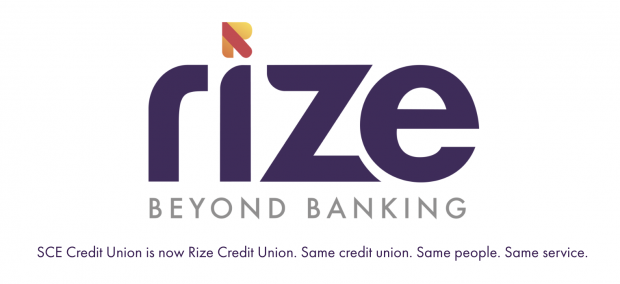<p>WASHINGTON – Both TNB Card Services and Payment Services for Credit Unions (PSCU), among the nation's largest credit card service providers for credit unions, have begun purchasing or facilitating the purchase of credit unions' credit card portfolios. The entry of these large credit union players into a market heretofore dominated by bank purchasers appears to offer credit unions interested in selling their portfolios more comfortable partners for their possible sales. Glen Lee, senior vice president of TNB Card Services, a division of the credit union owned Town North National Bank, said that TNB's decision to begin bidding on credit unions' credit card portfolios did not reverse the bank's long standing advice to credit unions to not sell their portfolios but instead recognized that "some are going to sell them no matter what we say." "We have had to recognize that keeping their credit card portfolios may not be the best move for every credit union," Lee said. "It is still a rarity among credit unions in our opinion, but that can be the case for some credit unions." Lee said that TNB may not be the winner on price in a head-to-head bidding war with a major credit card purchaser like MBNA, but that TNB will offer credit unions a greater measure of comfort with the sale of the credit card relationship it has with some of its most economically active members. "We have been owned by credit unions for 27 years," Lee said. "We will have a long-term commitment to preserving those long-term relationships with credit union members that other credit card purchasers may not have." Lee stressed that 20 or 30% of a credit union's most economically active members are the most likely holders of the credit union's credit card and that, even if the purchasing organization honors those relationships by not dramatically increasing the interest rates and fees, Lee maintained that it will still likely market its other products to those credit union members who are among the credit unions most active. A commitment not to do that is part of what makes TNB a better option for credit unions, Lee said. TNB has not yet purchased any credit card portfolios and Lee said that "none of the negotiating cycles into which we might be engaged" would lead the bank to purchase any portfolios in the next month. He would not comment on credit card portfolios that TNB might be reviewing for purchase. The Florida-based PSCU, the nation's largest CUSO, has also begun purchasing credit unions' credit card portfolios and, with a slight difference in approach, offers credit unions a similar degree of comfort. PSCU has partnered with a bank, the National City Group, a Michigan subsidiary of the $106 billion Cleveland-based National City Corporation, a bank holding company, to make the purchases. In the partnership PSCU continues to provide the customer service for the purchased portfolio that National City actually buys. PSCU started to negotiate the sale of portfolios in late August 2001, according to PSCU CEO David Serlo. As with TNB, PSCU does not advocate that all credit unions sell their card portfolios but provides, in conjunction with National City, a process through which credit unions can evaluate their portfolios' performance and determine whether it would be better to sell it or to keep it and make the necessary investments of capital, training and personnel that might be required to make the portfolio perform more up to its potential. "We encourage credit unions to make a decision to sell based on its business plan and not as an emotional decision based on a large premium," Serlo said. "Credit unions should evaluate their portfolios to make a well thought out decision." Since PSCU is partnered with a bank that could be seen as having a vested interest in buying the portfolios it was evaluating, it might be easy to assume that any portfolio review would result in a sale. But that would be an erroneous assumption, said Steve Railey, an executive director with PSCU in charge of the portfolio evaluation and sale. "We have seen the majority of credit unions that have gone through the portfolio evaluation process decide to keep them," Railey said. "The process of evaluating the portfolio and contemplating what it might bring were they to sell it has helped the credit unions appreciate the portfolio's worth. They see if someone else recognizes the portfolio's potential, it might be worthwhile investment," said Railey. According to Railey, the PSCU-National City partnership only evaluates and purchases credit card portfolios from credit unions that are already using the PSCU platform. Of the roughly 500 credit unions in that group, Railey said, only 30, with credit card portfolios worth roughly $252 million, have evaluated their credit card portfolios. Of those 30, 65% have decided one way or another to keep them or sell them, he said, and so far only five have decided to sell. Railey also disputed any suggestion that PSCU is brokering credit union credit card portfolios and is merely the service provider in partnership with a more powerful institution. "PSCU is not serving as a broker even though we are partnered with an institution that will purchase if a credit union decides to sell," Railey said. "We are true partners. There are shared attitudes and culture between National City and PSCU," he said. As an example of the close partnership, Railey said that National City includes an agreement not to cross-sell any of its products to the credit union members in the purchasing contract and, in relationship with both PSCU and the selling credit union, works with both to market the cards as well as other of the credit union's products to the members. "We insist on a marketing meeting with the credit union and National City at least annually, if not quarterly," Railey said. PSCU purchased three credit union portfolios in the last month, Railey said, from Nazarene Credit Union in California, Holy Oak Credit Union in Massachusetts and Cabell County Schools, in West Virginia. Jay Wolahan, Executive Vice President with the $57 million Holy Oak, said the credit felt very good about its decision. "We didn't really have the capital and other things we needed to make the credit card really serve our members," Wolahan said. "We had a really vanilla card," he said and the credit union concluded that it lacked the resources it needed to grow the portfolio to its full potential. The arrival of TNB and PSCU as credit card portfolio buyers indicates that "it's a good time for credit union's to consider selling," said Keith Floen, Managing Director of InfiCU, a subsidiary of InfiCorp, a credit card bank that is a wholly-owned subsidiary of First National of Nebraska. Floen, who served with CUNA's Credit Union Card Services before coming to InfiCU, said that TNB and PSCU's entry into the market indicated the two firms were aware of the rising value of their credit unions credit card portfolio and were acting to protect their service relationships. Floen acknowledged that the arrival of TNB and PSCU brought more competition into the market for credit unions that sell their portfolios strategically, rather than those who sell primarily based on the amount of premium the portfolios can draw, but he said InfiCU welcomed the competition. Like the other two, Floen said InfiCU would also not market other products to credit union members, primarily because it didn't have any. "InfiCorp is a credit card only bank," he noted. "As part of our charter we can't offer the things that full service banks offer, no home mortgages, no CDs, no auto loans."</p>
Complete your profile to continue reading and get FREE access to CUTimes.com, part of your ALM digital membership.
Your access to unlimited CUTimes.com content isn’t changing.
Once you are an ALM digital member, you’ll receive:
- Critical CUTimes.com information including comprehensive product and service provider listings via the Marketplace Directory, CU Careers, resources from industry leaders, webcasts, and breaking news, analysis and more with our informative Newsletters.
- Exclusive discounts on ALM and CU Times events.
- Access to other award-winning ALM websites including Law.com and GlobeSt.com.
Already have an account? Sign In
© 2024 ALM Global, LLC, All Rights Reserved. Request academic re-use from www.copyright.com. All other uses, submit a request to [email protected]. For more information visit Asset & Logo Licensing.









